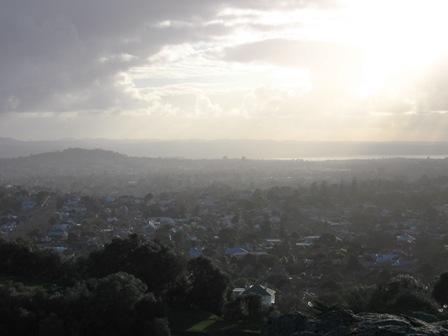An Empowering Education
I have just posted a slightly different version of the piece below on the blog Reading the Maps if you want to read it there.
Maia at Capitalism Bad; Tree Pretty has been writing about alternatives in education. It got me thinking about my childhood and education. I spent all of my school life attending an alternative school – one that could be classed as following a holistic curriculum.
'Education should be understood as the art of cultivating the moral, emotional, physical, psychological and spiritual dimensions of the developing child. A holistic way of thinking seeks to encompass and integrate multiple layers of meaning and experience rather than defining human possibilities narrowly. Every child is more than a future employee; every person's intelligence and abilities are far more complex than his or her scores on standardized tests. Holistic education aims to call forth from people an intrinsic reverence for life and a passionate love of learning. This is done, not through an academic "curriculum" that condenses the world into instructional packages, but through direct engagement with the environment. Holistic education nurtures a sense of wonder'. http://www.infed.org/biblio/holisticeducation.htm
The aim of my school was to produce well-rounded individuals. Education needs to empower students now. The Education and teachers hopefully develop in the children such power of thought, such depth of feeling, such strength of will that they would emerge from their school years as full members of the Human Community, able to meet and transform the world. As in any organisation the school had its good and bad points but overall I feel extremely happy to have attended the school. I had many rich experiences throughout my school days. One of the strengths of the education was that it built up my self-confidence and ability to think laterally. A great tool for life - any gaps in knowledge could be filled in later, as I had the nous to go out and ask questions, research and discover things for myself. One of the wonderful aspects of my education was the school was like a community. Some of my closest friends now are people I went to school with from kindergarten. The school was co-educational and we were not streamed and so went through the school with the same group of students.
I remember my education as being very full and experiential - we would study topics in depth for a couple of hours a day for 3-4 weeks, e.g. Indian Mythology. We would learn about it using all types of learning e.g. Visual, Kinesthetic, Auditory, and Oral. For example, while studying Indian Mythology we heard stories, learnt music, poetry, cooked Indian food and learnt traditional dancing, learnt some of the language and put on a play as well – so it was an exceedingly full learning experience. This type of learning went all the way through the school from primary to secondary school. Subjects covered in the curriculum ranged from the Philosophy, Norse Mythology, Greek Mythology, History of Architecture, 20th Century History, Physics etc… These ‘Main Lessons’ ran alongside regular classes in English, PE, Maths etc… I remember we went on interesting school camps. As 12 year olds studying Geology we went on a camp to Waitomo and went caving.
The school day, the week and the year had a strong rhythm to it and gave us the sense of stability and connectedness to the world around us. We acknowledged the rhythm of the year by celebrating the change of seasons. For example, in autumn we would dress up in autumnal colours, have a harvest table of food we would give to charity, sing songs and eat a meal together (which we cooked). For winter we made a bonfire, made lanterns and went for a lantern walk at night and sang winter songs – very magical! The early years were full of art, drama, music, stories – the education really encourages the Child’s imagination. The way of teaching and learning engaged the children, acknowledging their world and the culture of childhood.


0 Comments:
Post a Comment
<< Home